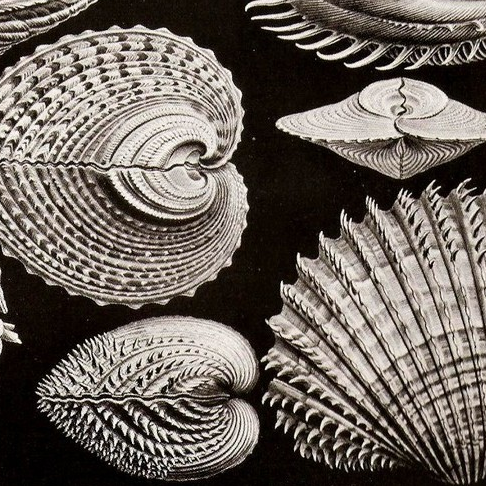Can a culture study its own knowledge? Yes, according to sociologist David Bloor. More than that: it is vital that we can look at our own scientific knowledge scientifically. Otherwise, there would be an “irony at the very heart of our culture. […] it would mean that science could not scientifically know itself.”[1] Speaking of irony: 2400 years before Bloor said this in 1976, Socrates supposedly saw himself confronted with a very similar question while talking to a certain Charmides. For reasons wholly different than Bloor’s, Charmides and his caretaker Critias defend the position that science can be applied to itself – that there is a ‘meta-science’ through which we know knowledge.
Charmides is the most charming boy Socrates has ever met – when he arrives, everyone tries so hard to sit next to him that people get pushed off their seats. Socrates himself is dumbstruck by the boy – the beauty of whose body, a close friend ensures him, even outshines that of his face. But of course, when Socrates manages to speak, he immediately moves from the topics of beauty and health of the body to those of the soul – Charmides suffers from headaches, and in order to get rid of those, he will need to submit himself to Socrates’ charms, which concern the soul.
Socrates’ preliminary investigations zoom in on the virtue of sophrosyne that Charmides allegedly possesses in high measure. Sophrosyne is an aristocratic virtue that covers traits such as self-control and temperance. As usual, Socrates inquires what this thing is and starts a conversation which will quickly lead him to questions about knowledge. Charmides shyly shares his first hypotheses – sophrosyne is doing everything quietly, or perhaps it is more like modesty – both of which Socrates dismisses quickly. Charmides’ third definition, which he has heard from someone else, is that sophrosyne consists in minding your own business.
Self-mastery and competence
Socrates discerns that the source of this piece of wisdom is Critias, and attacks poor Charmides with such sarcasm – really, is everyone to weave their own cloaks and make their own shoes from now on? – that Critias feels obliged to take over and defend this definition. There’s a difference, Critias says, between doing other people’s business and making other people’s things. There are certainly good ‘works’ and ‘actions’ done for others, but that doesn’t contradict the new definition; it strengthens it, for those good works are precisely the ones which come from a temperate mind; those which are genuinely ‘your own’.
And now we get to the heart of the matter, and to the reason, I think, why Socrates probes so deeply into the aristocratic virtue of sophrosyne: it is precisely the supposed unity between self-mastery and competence to act in the world that is under scrutiny here. A doctor who cures successfully does as he should, Socrates says; but for this, he doesn’t need to know that his cure is successful, right? But does that mean that you can ‘be temperate’ without knowing you are? Critias senses the danger and hastens to say that on the contrary, sophrosyne and self-knowledge are identical.
Socrates ponders this, partially new, definition. Sophrosyne is knowledge; so then, it is some kind of science (epistèmè)? Yes, says Critias; a science of oneself. Socrates investigates the meaning of this identification through comparisons with other recognized ‘sciences’, such as medicine or architecture. Medicine produces health; architecture produces houses; but it’s less clear what sophrosyne produces – it’s not even clear, in fact, what it is about. Critias says that it is a science about all other sciences, thus including itself.
Socrates, after some consideration, finds this paradoxical. It seems that a doctor, even a very skilled one, can fail to tell us what medicine is, if he does not have sophrosyne. On the other hand, it is not clear how someone who has only sophrosyne would identify a doctor! After all, he would have to assess the doctor’s knowledge of medicine, but how would he do so without having medical knowledge? How do you talk about scientific expertise when you’re not an expert yourself?
Meta-science and morality
Still, Critias says, if sophrosyne, as a virtue, ruled the state, then surely fewer things would go wrong – we would be able to pick out the real doctors, the real craftsmen and the real prophets, rather than the fakes. “I grant”, says Socrates,
that the human race, if thus equipped, would act and live in a scientific way – because sophrosyne, watching over us, would not allow the absence of science to creep in and become our accomplice. But whether acting scientifically would make us fare well and be happy, this we have yet to learn, my dear Critias.
What is it about science that can make us happy? Is it that we can make shoes or work bronze? No, Critias admits. To the happy man who knows everything scientifically, it is the knowledge of good and evil that makes him particularly happy.
Now Socrates merely has to wrap up his work of deconstructing the very concept of sophrosyne. For, if it is moral science that makes us happy, we need to clear up the question whether this moral science is entangled with other sciences. Keep in mind that the concept of sophrosyne that Critias has defended assumes that it is: it combines self-knowledge with competent judgment and good works. But when push comes to shove, does the physician need moral knowledge to be able to produce health? Does the cobbler require it to produce shoes? Of course not!
Here, Socrates has separated morality wholly from technique. The relation between moral knowledge and regular sciences and crafts is a recurring theme in Plato’s dialogues, which he doesn’t always resolve in the same manner (and which, in this aporetic dialogue, he explicitly doesn’t resolve at all!). The common denominator is a tension between the kind of knowledge that constitutes technical expertise, and the reflective understanding of moral truths that Socrates is so keen to dig up.
Moral knowledge, if it exists, is definitely knowledge; Socrates uses the term epistèmè for medicine, reliable shoe-production, and moral knowledge alike. But it is a special kind of knowledge, and this has radical consequences only hinted at in the Charmides. Especially, it means that our task is not exhausted by making sure that all social tasks are performed competently. The question is not just, given what needs to be done, who can do it best and how. The question is what needs to be done at all.
The ethics of the Tyrants
Thus, Socrates here unmasks the aristocratic ideology of his conversation partners – both of whom were real-life figures who played a part in the pro-Spartan oligarchy that was imposed upon the city of Athens after its defeat in the Peloponnesian War. Of course, Plato’s Socrates is not thereby a democrat. But that is precisely why this dialogue is so interesting. We might have expected Socrates to argue in favor of the replacement of a democratic, relativist perspective on morality by one focused upon experts. But the ‘meta-expertise’, the ‘science of science’ which the would-be Tyrants advocate, which seems to come so close to this, gets roasted expertly in the Charmides.
Between them, Charmides and Critias possess charisma, virtue, reflective capabilities; they radiate a competence to rule. But their justifying ideology here revolves around sophrosyne: the competence, flowing from their self-restraint and their ability to know what belongs to whom, to judge and allocate technical expertise so that everything gets done well. “We would live through life without error, we ourselves and those who have sophrosyne, and all others who were ruled by us”, Socrates paraphrases the utopian vision of the technocrats before showing this central concept to be utterly vacuous.[2]
In passing, he argues that science can’t scientifically know itself, that there is no separate ‘science of science’, and that if there were, it wouldn’t provide us with genuine understanding. Self-knowledge and competence to act are, for now, utterly separated. If we want to know ourselves, we need to tap other sources than ´meta-knowledge’.
This brings me to my final point. Having lured you in with the promise that Plato would reflect on the concept of ‘meta-expertise’ – which he did! – I, like Plato, have another agenda. For what Plato is also doing here, is sowing the seeds of a whole new approach to knowledge. He loosens the soil by demonstrating the internal contradictions in existing perspectives. In Charmides, one implicit idea of knowledge — as technique — gets it: it breaks apart as soon as we apply it to knowledge itself. There are other ‘ways of knowing’ that Plato needs to clear for his own perspective to flourish. But what, precisely, is he making room for? More on this later.
o-o-o
[1] Knowledge and Social Imagery (1991 edition) 46 (or at the beginning of chapter 3).
[2] See also: Paul Stern, ‘Tyranny and Self-Knowledge: Critias and Socrates in Plato’s Charmides’, American Political Review 93.2 (1999) 399-412 (this quote on p. 408).
Featured image: 1st edition cover of A Brave New World

